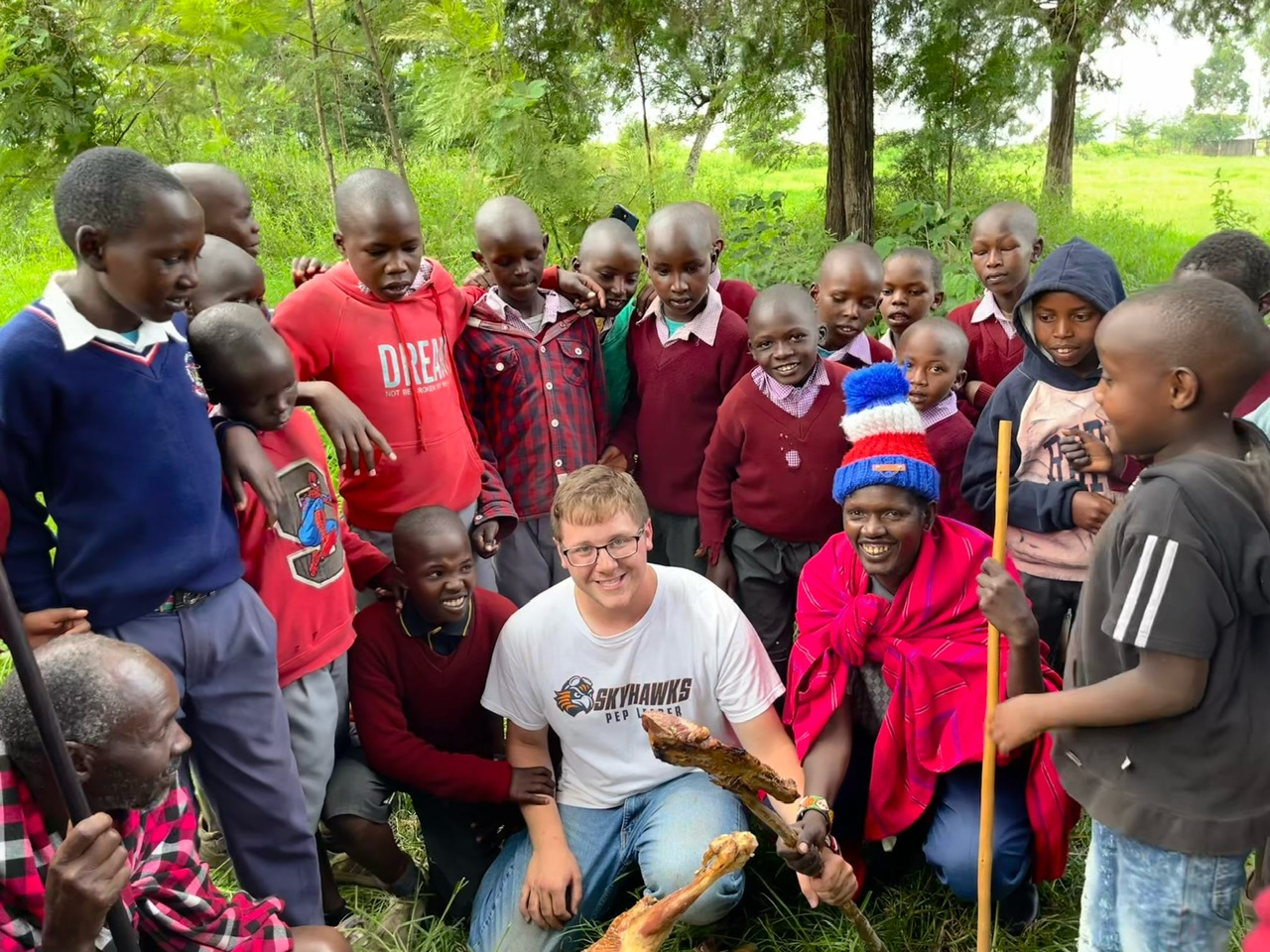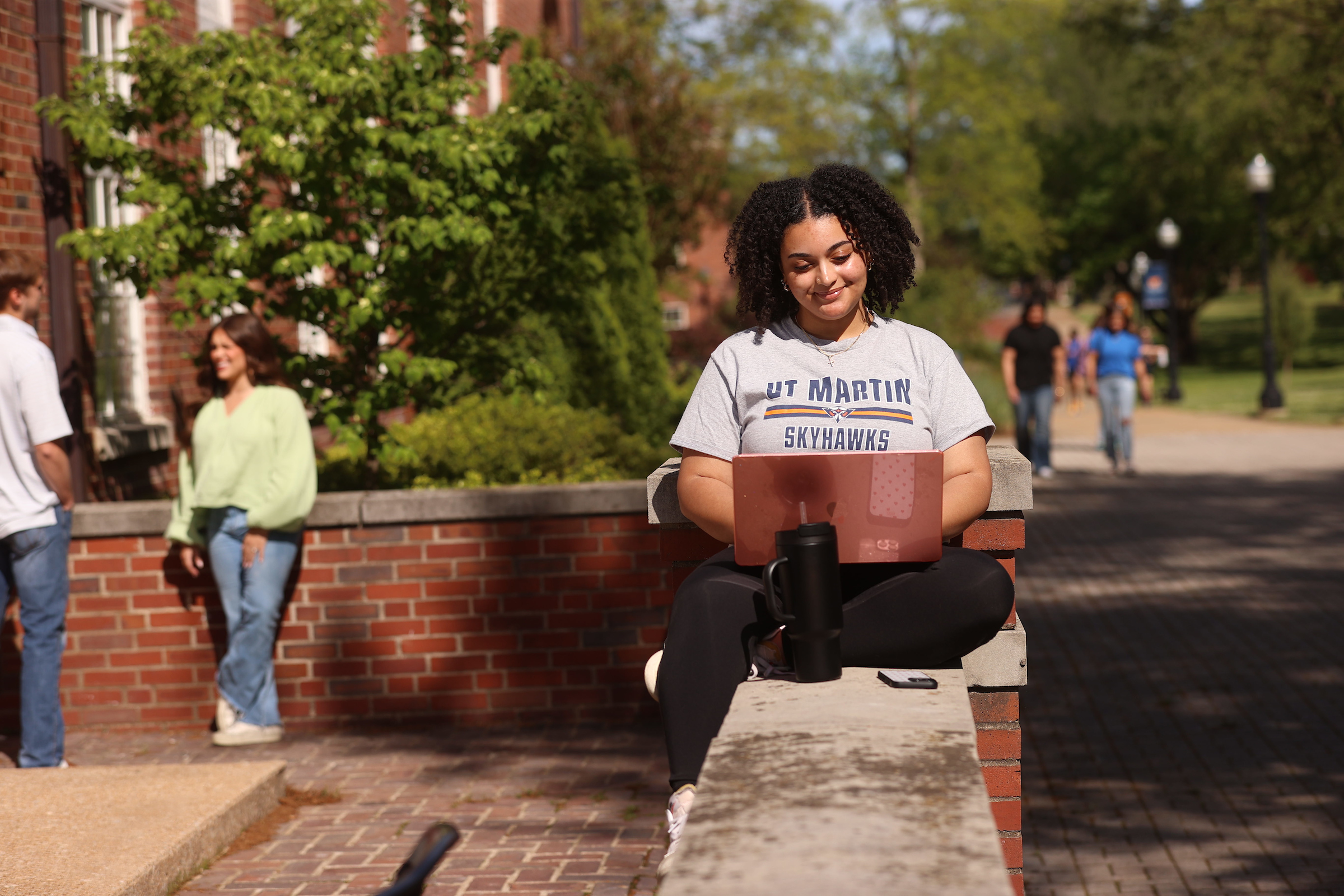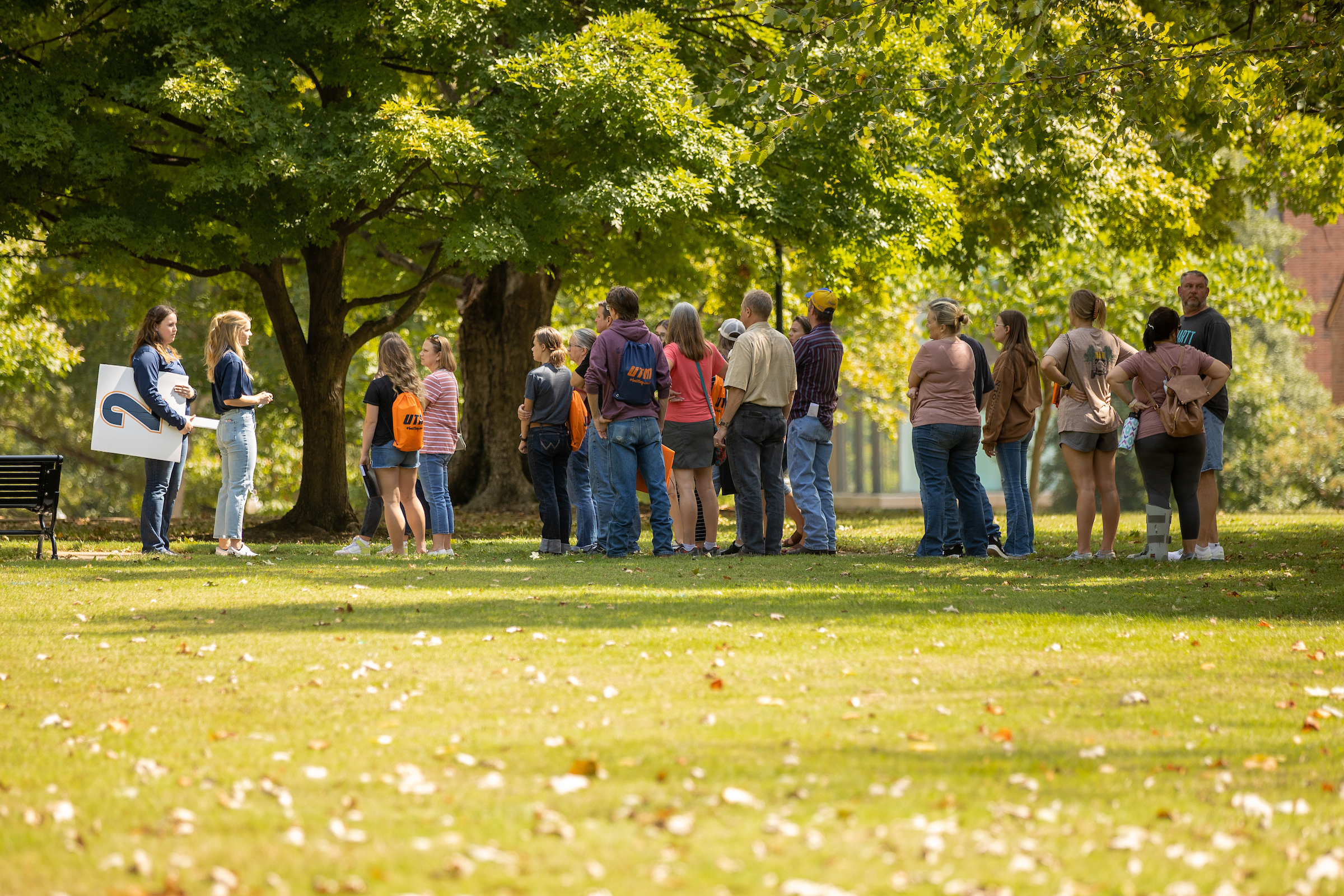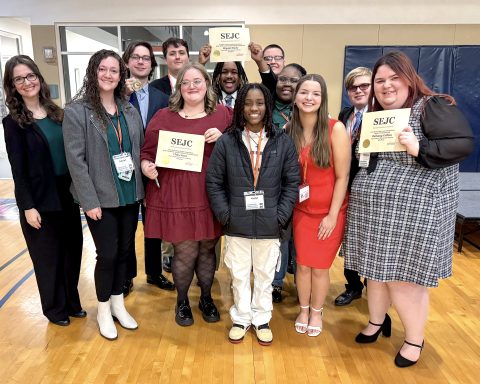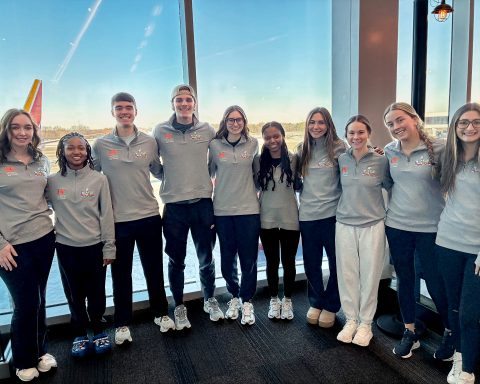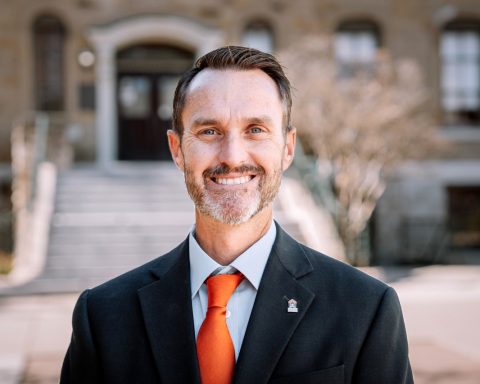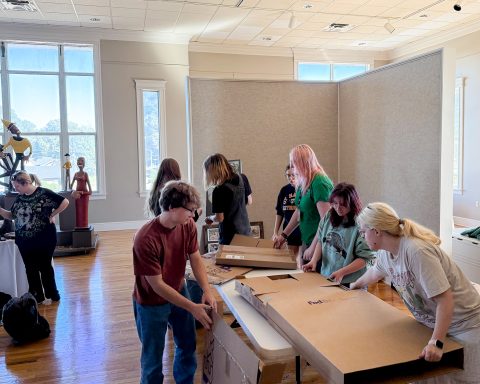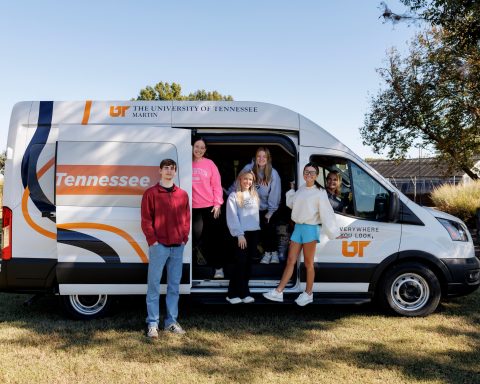The University of Tennessee at Martin earned a $745,000 three-year grant from the U.S. Department of Agriculture to enable faculty and students to travel to Kenya to share their knowledge of agriculture, natural resources, nutrition and education with students in the East African nation and, in turn, learn something from the Kenyan students.
The program is called UTM in Kenya, and its mission is to share knowledge for the betterment of both countries.
UTM faculty on the grant are Dr. Todd Winters, project co-director and principal investigator and dean of the College of Agriculture and Applied Sciences; Dr. Keith Dooley, project co-director and principal investigator and chair of the Department of Family and Consumer Sciences; Brian Carroll, lecturer of nutrition and dietetics; Dr. John Cole, assistant professor of agricultural engineering technology; Dr. Barb Darroch, associate professor of plant and soil science; Dr. Craig Darroch, professor of animal science; Dr. Stan Dunagan, professor of geology; Dr. Issac Lepcha, lecturer of plant and soil science; and Dr. Bethany Wolters, assistant professor of plant and soil science.
Winters said the partnership started in 2018 when Ernie Williams, the chairman of the Tennessee-based nonprofit organization Innov8Africa, contacted him about getting UT Martin students to Kenya to do sustainable agriculture work with his organization.
“Another foundation that he oversees, the Golightly Foundation, is a scholarship benefactor of a number of our students in both agriculture and family and consumer sciences,” he said. “I visited Kenya and initiated a memorandum of understanding in the summer of 2019.
“We started planning a travel-study trip, but then COVID hit. We brought our first group of students in the summer of 2023, and again this past summer. Each student working with faculty has a service or research project that they work toward when they are on the trip.”
This grant expands on those activities for three more years and includes students in Weakley County schools through the NWTN Local Foods Networks Farm to School programs.
Other researchers on the grant are Ernie Williams, co-principal investigator, Innov8Africa; Lisa Palet, Innov8Africa; Felix Onyango, Innov8Africa; Benard Makinia, Innov8Africa; Samantha Goyret, co-principal investigator, NWTN Local Foods Network; Caroline Ideus, NWTN Local Foods Network; and Dr. John Ricketts, outside reviewer, Tennessee State University.
“We’re trying to teach them other ways to grow food, and we’re starting with the students in the schools because the adults are kind of set in their ways already,” said Dooley.
Dooley accompanied the groups to Kenya in each of the last two years.
“It’s a three-week trip,” he said. “It’s a long journey to get there, so we spend nearly three weeks in-country. The first half of the trip, we spend most of our time doing service-learning work in the K-8 schools, visiting daily.
“We have projects lined up before we leave. Each student has to pick a project that is within the scope of what Innov8Africa does or something similar enough to where they can teach something or demonstrate something or help with something that the schools already have going on.”
During that first half of the trip, the group brings in cultural experiences and talks with people who are doing work in Kenya like food security, women’s rights and general health advocacy.
“The last half of the trip is spent being tourists and exploring the Kenyan culture,” Dooley said. “We go on safari in national parks and game preserves, and we visit industrial livestock farms, beekeeping operations and flower farms – Kenya is a big flower- and rose-producing country for the world.”
The three-year grant provided by the U.S. Department of Agriculture will help provide trips from Martin to Kenya.
“We plan to do three-week tours for our students and faculty, but we’ve also planned some visits to Kenya by some of Weakley County teachers and some Extension agents in Tennessee,” Dooley said. “We’ve also incorporated two visits for Kenyans to our area. We hope to bring over some Kenyan teachers and some of the Kenyan staff of Innov8Africa for visits to the U.S.”
Dooley added that the agricultural practices in the United States and in Kenya are similar, but the people in Kenya have adapted in different ways.
“The U.S. has more resources available to them than the Kenyans do, but they still manage to come up with some innovative ideas for water conservation and crop production and even dairy cattle operations,” he said. “As we exchange information and have these trips, we’ll be sharing some of the different methods that the cultures use.”
Winters said that Kenyan-style gardens and forage systems will be set up in Weakley County on the UT Martin campus, Sharon Elementary School and Dresden High School.
“The students at those schools will see some of these methods that the Kenyans are using and learn from that,” he said. “In the case of the grazing system, we’re going to try a brand-new grazing system that one of our faculty members, Dr. Isaac Lepcha, was successful with in his home country of Bhutan.”
Dooley and Winters said the opportunities for UT Martin students as well as the students in Kenya are great.
“I’m excited to be able to introduce UT Martin students to the Maasai culture in Kenya,” Dooley said. “The trip that I took to Kenya last year was actually my first trip outside of the U.S., and I was blown away. To be able to go back a second time and lead some students was really a blessing. I’m really excited about letting our students and faculty experience what we have experienced so far.”
Winters added the benefits that students will get through the program are numerous.
“The reason that we are trying to do these international programs in the College of Agriculture and Applied Sciences and even across campus is to let our students know that agriculture is bigger than just Tennessee,” Winters said. “Agriculture is a global thing, and there are different cultures. It builds a bunch of life skills for these students that we can’t give them in the classroom, like multicultural competency and problem solving and critical thinking and resiliency and communication – they are all skills that they get that we can’t provide them in the classroom anymore.”
Winters said the UTM in Kenya program ran for two years before the USDA grant was provided, and he said he hoped to gain additional funding when the grant runs out.
“Hopefully, we’ll be able to help (Kenyan students) develop practices to become self-sufficient,” he said. “That’s the goal. The Innov8Africa people get most excited when one of their schools leaves the program, because that means that the school has become self-sufficient and doesn’t need the program anymore.”
For more information about UTM in Kenya, contact Dr. Todd Winters at winters@utm.edu or Dr. Keith Dooley at wdooley@utm.edu.
PHOTO: Veterinary science student Ben Therrell is shown cooking goat over an open fire with Maasai children and parents. The UTM in Kenya program is an agricultural and educational exchange to help Kenyan and American students understand more about one another’s agricultural methods.

